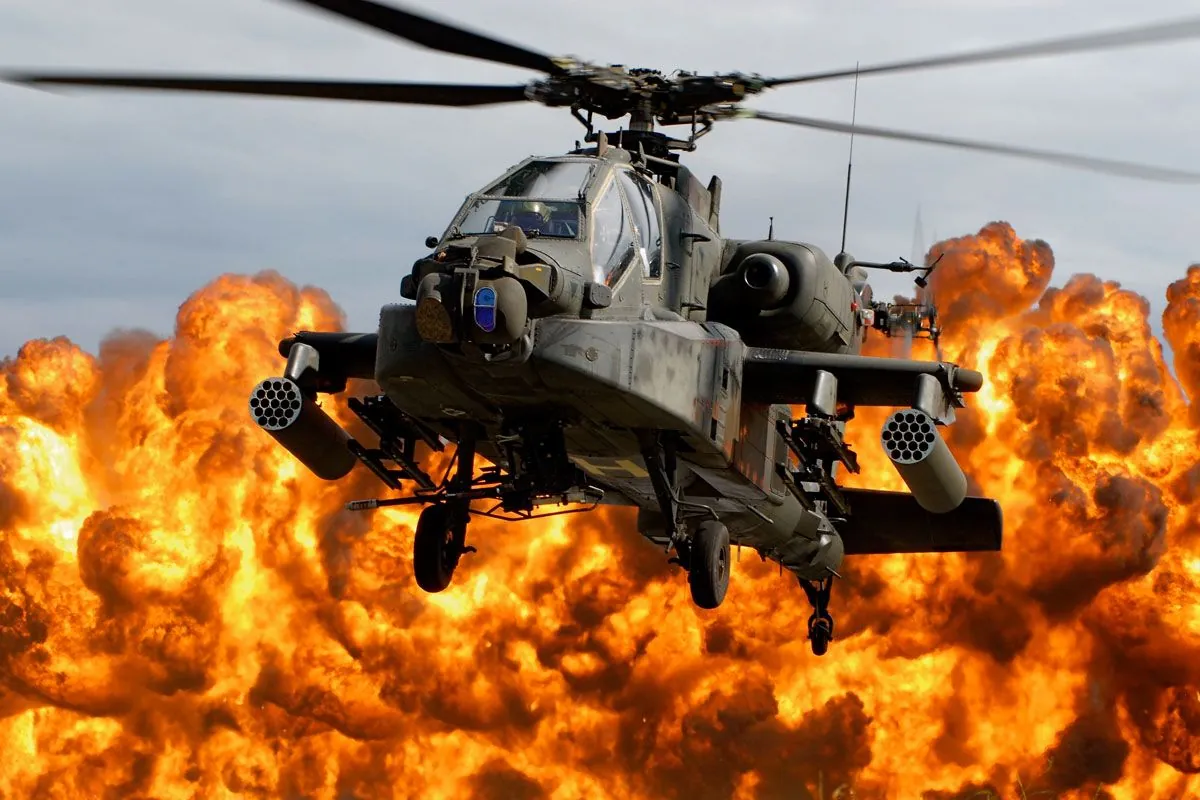North Korea has expressed strong opposition to the United States' planned sale of Apache helicopters to South Korea, as reported by state media KCNA on August 23, 2023. This development comes amid ongoing tensions on the Korean Peninsula, where the two nations remain technically at war since the 1953 armistice.
The potential sale, valued at approximately $3.5 billion, was announced by the Pentagon on August 21, 2023. It includes AH-64 Apache helicopters along with related logistics and support. This move is part of the longstanding US-South Korea alliance, which has been in place since the end of the Korean War.
An unnamed senior official from North Korea's foreign ministry issued a statement on August 24, 2023, condemning the proposed sale. The official characterized it as a "reckless provocative act" that could exacerbate regional instability. North Korea, officially known as the Democratic People's Republic of Korea (DPRK), accused Washington of escalating military confrontation and disrupting the military balance in the region.
In response to this perceived threat, Pyongyang has pledged to bolster its strategic deterrence capabilities. The North Korean government, which follows a "Juche" ideology emphasizing self-reliance and strong military defense, stated its intention to conduct further military activities to enhance its self-defense capabilities.
This situation highlights the complex dynamics of the Korean Peninsula. The region is home to one of the world's most heavily militarized borders, the Korean Demilitarized Zone (DMZ), which separates North and South Korea. The United States has maintained a significant military presence in South Korea since the Korean War, with the two nations conducting regular joint military exercises that North Korea often views as provocative.
It's worth noting that South Korea has been operating AH-64E Apache Guardian helicopters since 2016. The Apache, first introduced to the US Army in 1986, has become a symbol of American military technology and support for its allies.
The ongoing tensions in the region are further complicated by North Korea's nuclear weapons program and its numerous missile tests in recent years, including intercontinental ballistic missiles (ICBMs). These actions have led to multiple United Nations Security Council sanctions against North Korea.
As the situation develops, the international community will be closely watching how this latest disagreement impacts the delicate balance of power in Northeast Asia. The US-South Korea mutual defense treaty, signed in 1953, remains a cornerstone of regional security arrangements, committing both nations to defend each other in case of external armed attack.
"This is a reckless provocative act of deliberately increasing the security instability in the region."
The unfolding events underscore the ongoing challenges in achieving lasting peace and stability on the Korean Peninsula, as well as the complex interplay of military, diplomatic, and strategic considerations in this geopolitically sensitive region.
